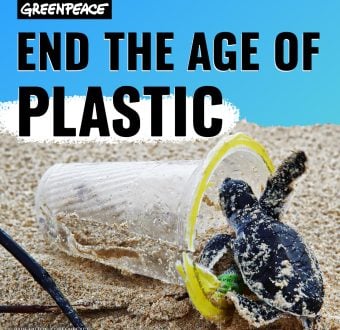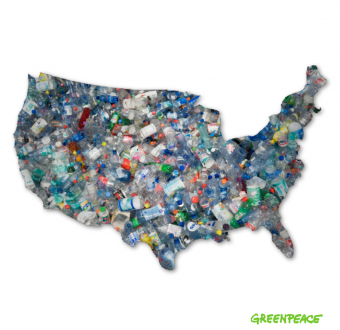Washington, DC – On April 16, representatives of the plastics industry — including the American Chemistry Council, Dow, LyondellBasell, and the Plastics Industry Association — sent a letter to members of the House of Representatives asking Congress for a $1 billion bailout. The letter, posted by The Intercept, urges members to invest in the nation’s recycling infrastructure to reverse the trend of landfilling plastics, but fails to acknowledge that most types of plastic packaging are functionally unrecyclable. The industry asks Congress to include the RECOVER Act in any infrastructure package, which would fund infrastructure efforts rather than reduce production of single-use plastics.
The letter coincides with an ongoing industry push during the pandemic to paint reusables as dangerous and overturn plastic bans. The plastics industry has touted older industry-funded research to attack reusables, while ignoring new research on COVID-19 from NIH, CDC, Princeton University, and UCLA that shows the virus can live on plastic surfaces longer than others. The Plastics Industry Association sent a letter to the Department of Health and Human Services on March 18 asking the agency to make a statement in support of single-use plastics.
In response to the industry’s $1 billion request, Greenpeace USA Oceans Campaign Director John Hocevar said:
“The highly subsidized plastics industry should not get another dime of taxpayer money to prop up its continued production of unnecessary throwaway plastic. As all of us continue to struggle through a pandemic, the industry and its surrogates have been busy exploiting people’s fears for profits. Handing out a billion dollars for plastic recycling would just be throwing good money after bad. Members of Congress should ignore this industry request as the recycled talking point that it is. Instead, they should support the Break Free from Plastic Pollution Act, which makes corporations responsible for the waste they produce and generates funding to support recycling infrastructure without putting the burden on taxpayers. The plastics industry should be responsible for its own mess.
“Investing in infrastructure for materials that can be repeatedly recycled is good for the economy and the environment, but recycling will never solve the plastic pollution crisis. There has never been much demand for most types of recycled plastic, with the vast majority of plastic waste dumped, burned, or littered. Even for plastic bottles and jugs, recycling is just a brief stop on the way to the landfill or incinerator and they are typically downcycled into carpets or clothing that are not recyclable. Recycling is the PR lifeline that the industry will continue to turn to as pressure mounts to phase out single-use plastics. Now, in the middle of a pandemic, the plastics industry is back attempting to convince America that its toxic products are fine as long as we all just recycle better. That is a lie that is no longer fooling anyone.
“Single-use plastic is dangerous throughout its entire lifecycle — hurting people who live on the frontlines of refineries, next to incinerators, or in highly polluted regions that serve as the world’s dumping grounds. Nothing about these throwaway plastics is safe and clean. They hurt our communities and our environment and must be phased out as quickly as possible.
“Congress should be supporting workers who need help right now, not a multi-trillion dollar industry looking for a handout. Plastics, recycling, and sanitation industry workers are struggling to survive as corporations look for ways to continue producing plastic that puts them and all of us at risk. These workers deserve adequate protections, paid time off, healthcare, and income to meet their needs. It is time to support the people who need it most, not provide more corporate welfare.”
###
Contact: Perry Wheeler, Greenpeace USA Senior Communications Specialist, P: 301-675-8766


